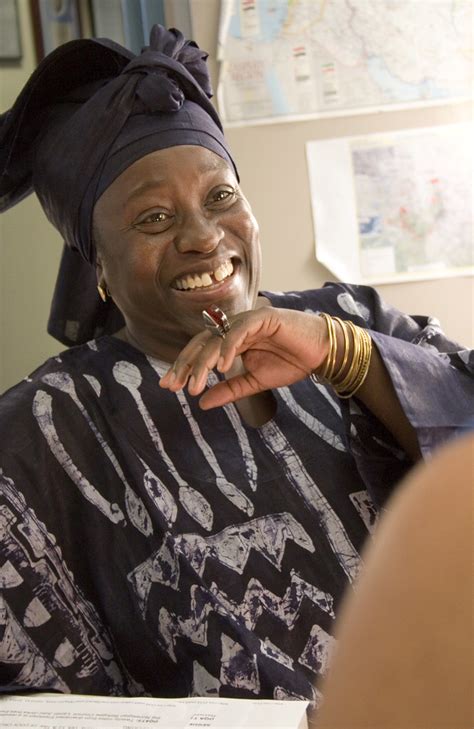A Quote by Bill Gates
We have two other countries, Pakistan and Afghanistan - again it's the instability that is a problem there. So over the next several years, we expect to drive the number of [polio] cases back down to zero because that is likely to be the second disease after smallpox that we completely eradicate.
Related Quotes
I think disease and all the things that we treat are tied to national security in a lot of ways that we maybe don't realize or that the American people don't realize. If other countries have a chance to be stable, then that helps us. If there are ways we can prevent if there are ways we can help other countries defeat diseases, we're about to totally eradicate polio. And can you imagine? That would be so terrific.
Pakistan is alarmed by the rising Indian influence in Afghanistan, and fears that an Afghanistan cleansed of the Taliban would be an Indian client state, thus sandwiching Pakistan between two hostile countries. The paranoia of Pakistan about India's supposed dark machinations should never be underestimated.
Obviously Pakistan and the U.S. are very different countries, but we have common geopolitical interests in preventing communist take over in Afghanistan and hence, now that Pakistan has a government that we can cooperate with, even though it is a military government, we are working together with them in order to promote our common interests. But obviously we also differ with Pakistan on a number of issues.
India just went 3 years with no cases [of polio]. Pakistan is our toughest location right now because some parts of the Taliban have not allowed vaccinators to come in and have even attacked vaccinators. We are hopeful this will get resolved since no one wants their kid to be paralyzed. I spend a lot of time making sure the polio campaign is doing the best it can. We have great computer models that help guide our activities.
There is Pakistan's relationship with Afghanistan which will also be a very tricky issue in the coming years. Then there is a large part of Pakistan which is being torn apart from American drone attacks. The country is being invaded constantly by a terrorist superpower. Again, this is not a small problem.
In many respects, Afghanistan represents a more difficult problem set. It does not have a number of the blessings that Iraq has in terms of the oil, gas, land of two rivers, the human capital that Iraq built up over the years, the muscle memory of a strong government - albeit one that was corrupted over time.
Some Pakistanis fought for the Taliban. Pakistani extremist groups provided infrastructural support to Al Qaeda. There was a coming and going of Al Qaeda militants and leaders between Afghanistan and Pakistan for several years. All that has really happened is that Al Qaeda has escaped from Afghanistan come into Pakistan, got in touch with their contacts and friends in these extremist groups, which then provided them with safe houses, cars, and not just in the border areas but also in the cities. Rooting out Al Qaeda in Pakistan now is where the main battle is being fought.
Everywhere I go in Pakistan and Afghanistan, I am touched by the fierce desire for education, and the outpouring of hospitality and generosity. The most important ingredient is the relationships. The process takes "Three Cups of Tea". First you are a stranger, second a friend, and the third, you become family, but the process takes several years. Here in America, we have 8 second sound bytes, 2 minute football drills, and thirty minute power lunches.
































